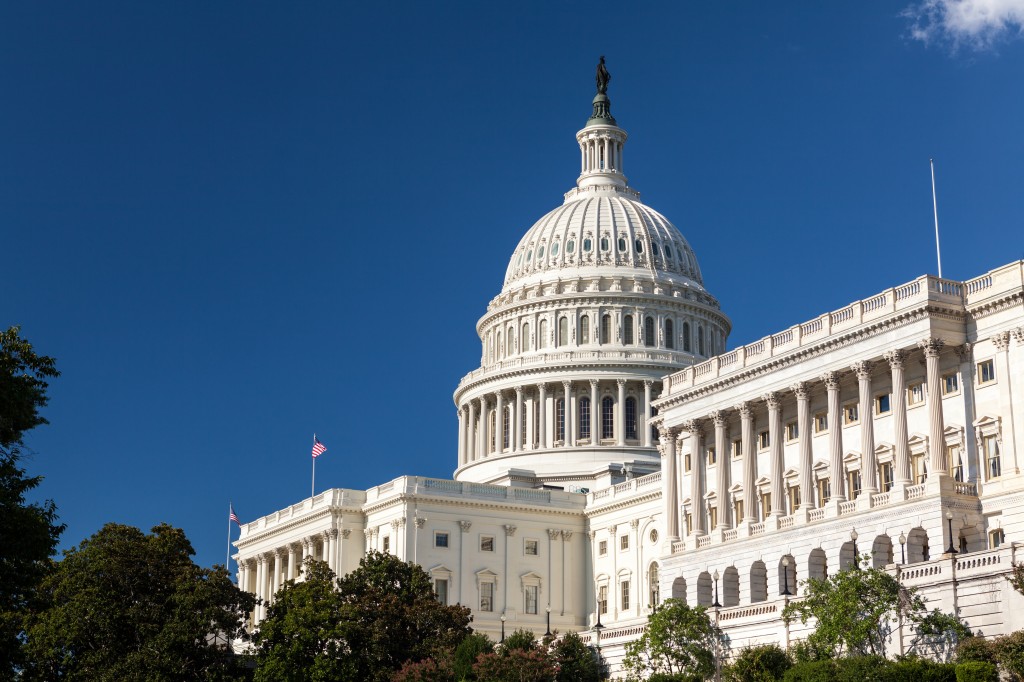
Faith Organizations Say to Congress: Maintain the Religious Hiring Status Quo
Stanley Carlson-Thies, May 13th 2016
An amendment in the House of Representatives to the FY 2017 defense authorization bill, designed to safeguard the religious staffing by religious organizations provided by the Civil Rights Act and American with Disabilities Act, is claimed by critics to promote LGBT discrimination. On May 9 a multi-faith group of more than 30 church and faith-based organization leaders, and religious freedom scholars and advocates sent a letter to the House leadership defending the amendment and the important religious staffing freedom.
The amendment, offered by Rep. Steve Russell (R-OK), and added to the National Defense Authorization Act for FY 2017 (NDAA), is brief, requiring that federal contracts and grants include for faith-based organizations the protections that are in two long-standing laws. Those protections are the religious organization exemptions in Title VII of the 1964 Civil Rights Act and the religious exemption in the Americans with Disabilities Act of 1990 (ADA). (A memo from IRFA provides the legislative language of the amendment and the exemptions, and critiques the key mischaracterizations of the Russell amendment.)
These exemptions say that it is not wrongful discrimination when a religious organization assesses the religious suitability of applicants and employees; the ADA language stresses that this is not a mere pro forma matter, as if the employer can only ask whether a job applicant claims to be of the same religion as the employer, but instead says that the religious organization can require employees to abide by its religious tenets or principles.
The purpose of the exemptions and of the Russell amendment is to enable organizations with a religious identity to be federal contractors or grantees, just as secular organizations can compete for the funds. Religious hiring is important to faith-based organizations in general because religion is a defining characteristic of the organization, just as political convictions, for example, matter when a Senator is hiring staff and convictions about treatment of animals are key when a vegan organization is choosing among applicants.
Since the Russell amendment only confirms the status quo—it simply reiterates these long-standing provisions in basic federal law—why was it even offered? Concern that action is needed to protect the existing religious staffing freedom has grown as the Obama administration, in the absence of any change in the law by Congress, has pressed to make discrimination on the bases of sexual orientation and gender identity illegal. Most noteworthy, the President’s 2014 Executive Order prohibited job discrimination on these two new bases by federal contractors.
The administration has not explained how these new prohibitions fit with the existing religious hiring exemption that also applies in federal contracting. Precedent—court decisions, for example, about how the ban on sex discrimination fits with the religious hiring exemption—indicates that a religious organization whose faith-based employment standards include both belief and faithful conduct is not engaging in illegal discrimination if it requires employees to match its code requiring both generosity to the weak and faithfulness in traditional marriage. Will the administration follow such precedent, or instead make sexual orientation and gender nondiscrimination into requirements that shrink religious employers’ freedom to consider religious standards? The Russell amendment reiterates and underscores existing practice and precedent in religious hiring as employment rules change in other ways.
Critics of the Russell amendment seek a different interpretation, prioritizing LGBT nondiscrimination. This is an important dispute; if the critics’ position is adopted, some proportion of faith-based organizations that have been government contractors or grantees will be excluded in the future, even though their employment policy follows the law and their services are regarded as the best on offer.
One of the House critics made the false claim that the Russell amendment would allow religious organizations receiving federal dollars to refuse to serve LGBT people and same-sex married couples. In fact, the amendment and the exemptions it references concern only the employment policies of the religious organizations and have nothing to do with service delivery at all—unless someone assumes that only an organization that hires same-sex couples can be trusted to be fair to such customers. But this represents a gross misunderstanding of faith-based organizations, which daily serve people unlike them in faith and lifestyle.
Other critics claim that the Russell amendment promotes “government funding of discrimination” because it protects religious staffing by religious organizations that receive federal dollars. A letter to the House Armed Services Committee from the Coalition Against Religious Discrimination (CARD) asserted this. CARD is a grouping of civil rights, church-state separationist, and religious organizations that often writes to the administration and Congress in opposition to religious staffing.
The May 9th letter from the church, faith-based, and religious freedom leaders specifically rebuts this and other CARD arguments. Religious staffing by religious organizations “is not a suspect act of discrimination” but rather a freedom specifically protected in federal law, the letter notes. And religious staffing does not somehow turn into “government funding of discrimination” if the religious organization receives federal funds. When the government funds a religious organization, it is simply paying the best provider of services, in this case an organization that is free under the law to hire by religion.
The extension of job protections to LGBT people does cast employment law and practices in a new light. Congress needs to step in to be sure that these new rights are balanced with, and do not wrongly override, the religious hiring freedom. The Russell amendment is a valuable step in that direction.
